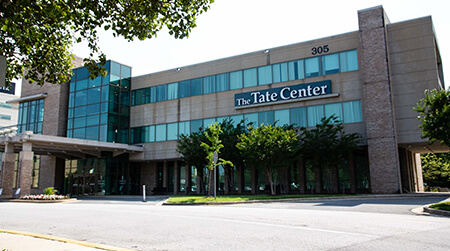


At Chesapeake Oncology Hematology Associates, we have a highly specialized, interdisciplinary approach to pancreatic cancer examination, diagnosis, and treatment. Our team comprises well-known professionals in pancreatic cancer who provide compassionate and comprehensive care. Our team goes over each patient's diagnosis to create the best pancreatic cancer treatment strategy for all types of pancreatic disorders, benign or malignant.

These are the types of cancer we treat:
Exocrine (Nonendocrine) Pancreatic Cancer
Exocrine pancreatic cancer arises from exocrine cells, including the exocrine gland and pancreatic ducts. The exocrine gland secretes enzymes that aid in the breakdown of carbs, lipids, proteins, and acids in the duodenum. There are various types of exocrine pancreatic cancers such as:

Pancreatic neuroendocrine tumors (NETs) arise from cells in the pancreatic endocrine gland, which secret the chemicals insulin and glucagon into the circulation to control blood sugar. Neuroendocrine malignancies, also known as endocrine or islet cell tumors, are rare, accounting for fewer than 5% of all pancreatic cancer cases.
Surgery is a good option if you have early-stage pancreatic cancer. During pancreatic cancer surgery, we generally remove only the part that has a tumor, but we may need to remove the whole pancreas in some cases.
Chemotherapy is the most used treatment for pancreatic cancer. We will give you the drugs through your veins. It will then enter your bloodstream and travel throughout your body. Chemotherapy is given in cycles followed by a rest period.
In radiation, we use high-energy rays to kill cancer cells. The radiation comes from a large machine that aims photon beams at the tumor in the abdomen. Depending on your condition, we may combine radiation therapy along with chemotherapy.
Targeted therapy is a drug given with chemotherapy to patients who can’t have surgery. You can take this drug through the mouth, unlike chemotherapy. Target therapy can prevent the growth of tumor cells in your pancreas and also stop it from spreading to other body parts.

8:00 AM ~ 4:30 PM (M-F)

8:00 AM ~ 4:30 PM (M-F)

8:00 AM ~ 4:30 PM (M-F)
You can minimize your risk of developing pancreatic cancer by avoiding alcohol, tobacco, and junk foods while maintaining a healthy diet and exercise routine.
Symptoms of pancreatic cancer include:
Pancreatic cancer screening tests for diagnosis include ultrasound, computerized tomography (CT) scans, magnetic resonance imaging (MRI), and, sometimes, positron emission tomography (PET) scans.
According to research released in 2014 by researchers at The Pancreas Center, roughly 10% of pancreatic tumors are related to breast and ovarian cancer syndromes caused by BRCA 1 and 2 mutations. Members of BRCAX families are also more likely to get pancreatic cancer, indicating the existence of additional genetic variables that enhance the risk of both pancreatic cancer and breast cancer.
Inherited gene alterations (mutations) can be inherited from parent to child and may cause up to 10% of pancreatic tumors. These alterations can sometimes result in syndromes that involve elevated risks of other malignancies (or other health problems)
The majority of pancreatic cysts are benign, and they develop from diseases other than cancer, such as inflammation linked with pancreatitis. Some cysts, however, are termed "precancerous," and a tiny number of pancreatic cysts are malignant or have the potential to become cancerous over time.
Pancreatic cancer has the potential to be cured if detected early. After treatment, up to 10% of people who obtain an early pancreatic cancer diagnosis are cancer-free.